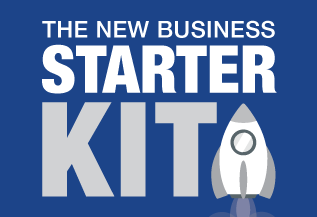3 superannuation changes every employer should discuss with their accountant in 2023
Set your business up for compliance changes and get the support you need to navigate nest eggs.
It can be a challenge for SMEs to stay on top of changing superannuation obligations that are mandated by legislation. As an employer you
have an obligation to pay the superannuation guarantee. Staying compliant isn’t just a legal obligation, it’s a must for protecting your
brand reputation from claims of dodgy super practices.
The Superannuation Guarantee is increasing
The 2023 superannuation changes are here, starting with the Superannuation Guarantee (SG) – where the employer must pay a minimum amount to eligible workers with failure to comply resulting in hefty penalties. Businesses faced an increase to 10.5% SG on an employee’s ordinary time earnings on 1 July 1 2022 and that rate is set to increase again. The SG is set to increase by 0.5% every 1 July until it reaches 12% on 1 July 2025. The year 2021 marked the first increase of super contributions since 2014.
Compliance is key in 2023
Among other changes to superannuation in July 2022 was the removal of the $450 minimum income threshold for the SG. Casual staff or staff working shorter shifts are now entitled to SG contributions, which can create a greater burden for small businesses. The changes come at a challenging time for many Australian businesses having faced ongoing natural disasters and a global pandemic over the past few years, against rising inflation, interest rates and supply chain demands. Business owners cannot afford the consequence of failing a Super Guarantee audit. Your accountant is crucial to assist with managing your cashflow and auditing your existing payroll and accounting systems in the lead-up and post 1 July 2023.
Getting it wrong can cost big
Failure to make your Super Guarantee payments by the due dates can be extremely costly. Typically, the superannuation contributions must be paid within 28 days of the end of the quarter. Failure to make this payment on time means the employer will be liable to pay the Superannuation Guarantee Charge (SGC), which can be financially punitive, particularly when a SG underpayment perpetuates over a number of quarters. Payment of SGC is facilitated through the preparation and lodgement of SG statements, which can be administratively burdensome. There is also a $20 administrative fee payable per individual, per quarter. If a SG underpayment is not rectified before an audit commences, a hefty penalty up to 200% of the SGC can apply. Employers owe a staggering $33 million in underpaid superannuation between 2013-2020. That’s almost $5 million a year. This is not a list you want to be a part of. The impact to the brand reputation can last for years when workers are left owed thousands in superannuation and wages like the collapsed Tozer Construction Group or Sydney eatery Bel & Brio, as well as personal liabilities.
Make 2023 the Year of Compliance
Although 2023 might technically be the Year of the Water Rabbit, bringing luck, money and success—it’s also the best year to ensure you’re completely super compliant. The Federal Labor government has previously flagged a proposal to take non-super-paying employers to court. Being compliant for 2023 superannuation changes might have you feeling a little overwhelmed. As a business owner you have lots of your plate. That’s where the help of an accountant can be of huge value to your business. There are also changes to contractors and superannuation—check out this article here . Superannuation can be a complex beast for compliance, and a great time to rely on your accountant's expertise to free you up for keeping everything else BAU.
Stay on top of superannuation changes. Arrange a chat with one of our expert team
members.
Disclaimer:
The information is general in nature and is not personal advice. It does not take into account your needs, objectives or financial
situation. You should seek independent advice suitable to your circumstances.














